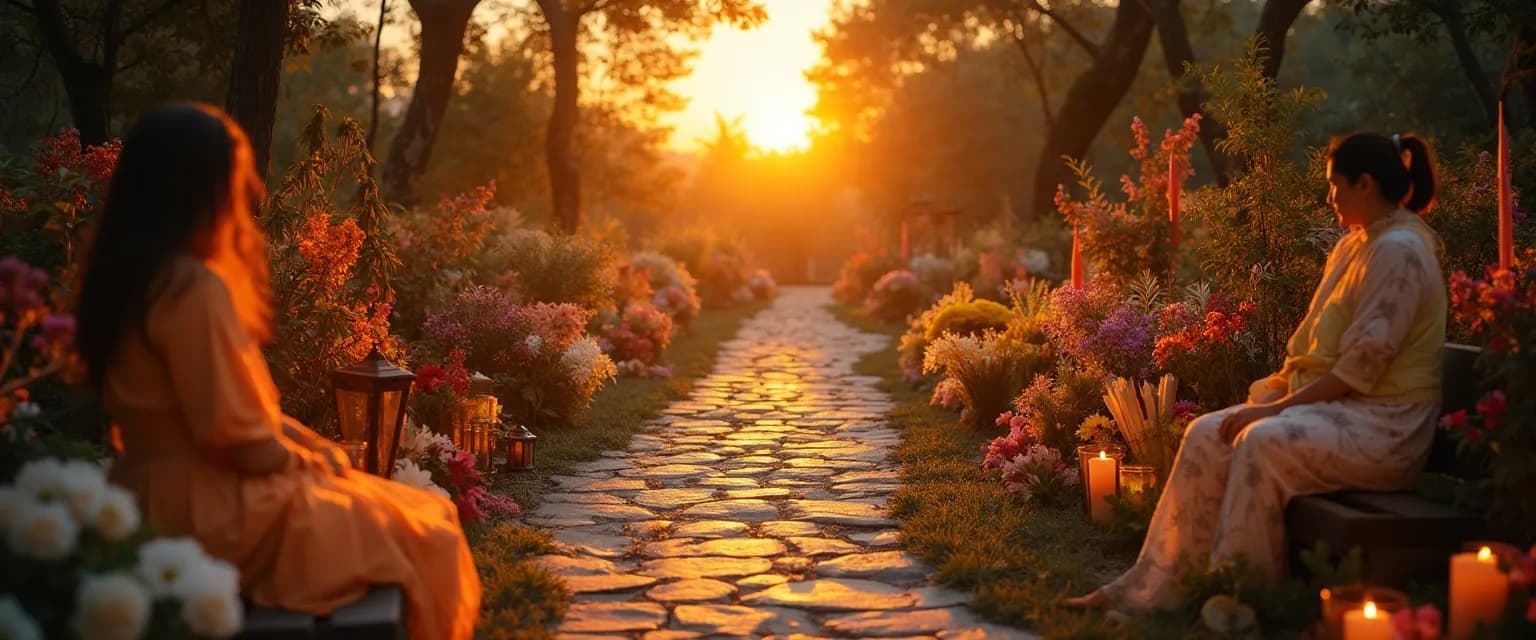Beyond Kübler-Ross: How Cultural Rituals Shape the Stages of Grief After Death
Grief is a universal human experience, yet how we process it varies dramatically across cultures. While the five stages of grief death model (denial, anger, bargaining, depression, and acceptance) offers a framework for understanding loss, it doesn't capture the rich tapestry of cultural rituals that shape our grief journeys. These stages of grief death provide a starting point, but cultural practices often offer deeper pathways to healing that complement and enhance this process. Research shows that cultural mourning traditions can significantly impact how effectively we navigate the challenging terrain of loss and recovery.
The stages of grief death concept, popularized by Elisabeth Kübler-Ross, has become the dominant Western understanding of bereavement. However, this model alone doesn't account for the emotional intelligence skills developed through cultural rituals that have evolved over centuries. These practices provide structure during chaotic emotional times and create communal spaces for processing difficult feelings that might otherwise remain bottled up.
Understanding how cultural traditions influence the stages of grief death can provide valuable insights for anyone navigating loss, regardless of their background. Let's explore how these practices shape our grief processing in profound ways.
How Cultural Funeral Customs Enhance the Stages of Grief After Death
Cultural funeral customs serve as powerful tools for moving through the stages of grief death in structured, meaningful ways. In many Eastern traditions, like those in Japan, elaborate funeral rituals last for days or weeks, providing a clear timeline for mourning that helps the bereaved gradually transition through denial and anger. The structured nature of these ceremonies creates a container for overwhelming emotions during the early stages of grief death.
Contrast this with Irish wakes, where storytelling and even humor create space for processing loss differently. These gatherings acknowledge the reality of death while celebrating the deceased's life, helping mourners move through the bargaining and depression stages of grief death with community support. The presence of others who share memories creates a collective experience that makes grief less isolating.
Many cultures use symbolic objects that facilitate stages of grief death processing. In Mexico's Día de los Muertos (Day of the Dead), families create ofrendas (altars) with photographs, food, and mementos of the deceased. This practice acknowledges the ongoing relationship with loved ones who have died, providing a healthy reframing of loss that helps with acceptance.
Time-specific ceremonies also mark progression through stages of grief death. Jewish shiva (seven days of mourning) followed by shloshim (30 days) and then a year of saying Kaddish creates a structured timeline that acknowledges grief evolves rather than simply ends. These practices recognize that the stages of grief death unfold gradually and require different types of support along the way.
Community Support Systems and the Stages of Grief After Death
Community involvement profoundly influences how people experience the stages of grief death. In many African traditions, grief is considered a communal rather than individual experience. Extended family members may move in with the bereaved, ensuring they're never alone during vulnerable moments. This approach provides crucial support during the depression stage of grief death, when isolation can intensify suffering.
Designated mourning periods in various cultures—from Hindu traditions of 13 days to Victorian mourning practices that lasted years—acknowledge that grief requires time. These culturally sanctioned periods provide social permission to fully experience the stages of grief death without rushing the process. They create space for emotions to be expressed rather than suppressed.
Cultural attitudes toward emotional expression also shape grief processing. While some societies encourage open expressions of grief through wailing or keening, others value stoicism and private mourning. Both approaches can support healthy movement through the stages of grief death when they align with personal values and provide anxiety management tools during overwhelming moments.
Research consistently shows that shared grief experiences lead to better psychological outcomes across different societies, highlighting how cultural support systems facilitate healing through all stages of grief death.
Embracing Cultural Wisdom for Healthier Stages of Grief After Death
Drawing from diverse cultural traditions can enrich your personal journey through the stages of grief death. Consider creating meaningful rituals that resonate with your values—perhaps lighting a candle on significant dates, preparing a loved one's favorite meal, or visiting places that held special meaning.
Understanding different cultural approaches expands our concept of the stages of grief death beyond a linear process to something more fluid and individualized. This broader perspective allows for a more personalized grief journey that honors both universal experiences and unique needs.
Remember that effective stages of grief death processing isn't about following a preset timeline but about finding meaningful ways to honor your relationship with the deceased. By incorporating elements from various cultural traditions, you can develop a more robust toolkit for navigating loss while honoring your connection to the person who has died.




